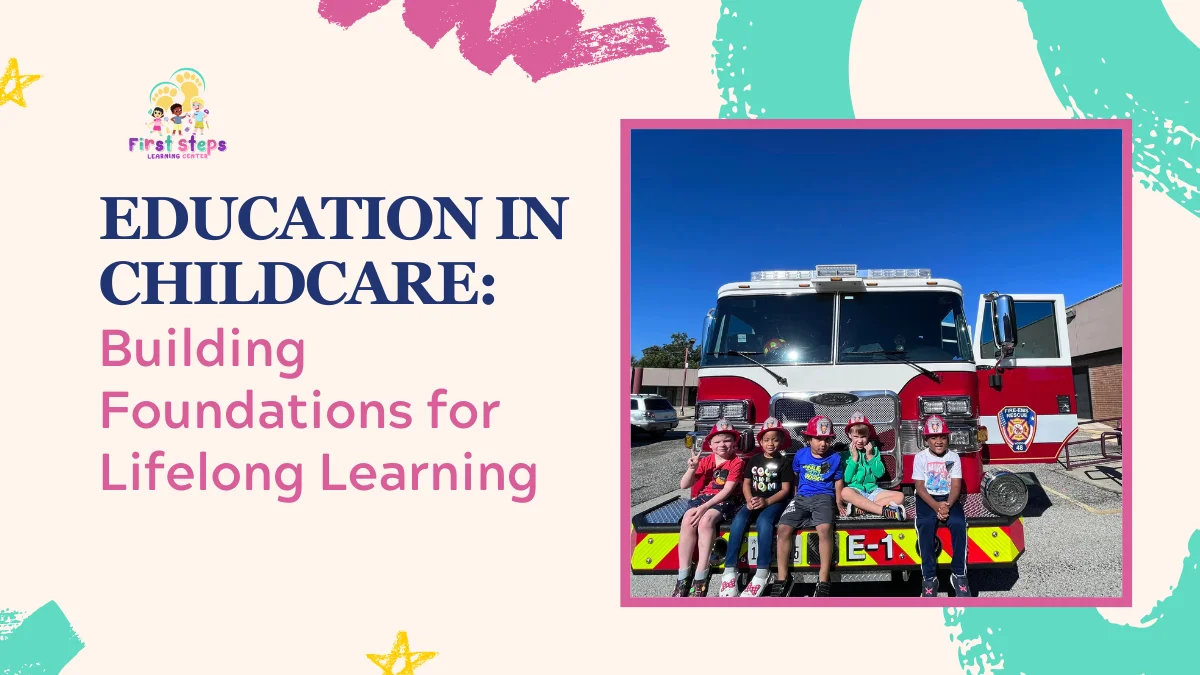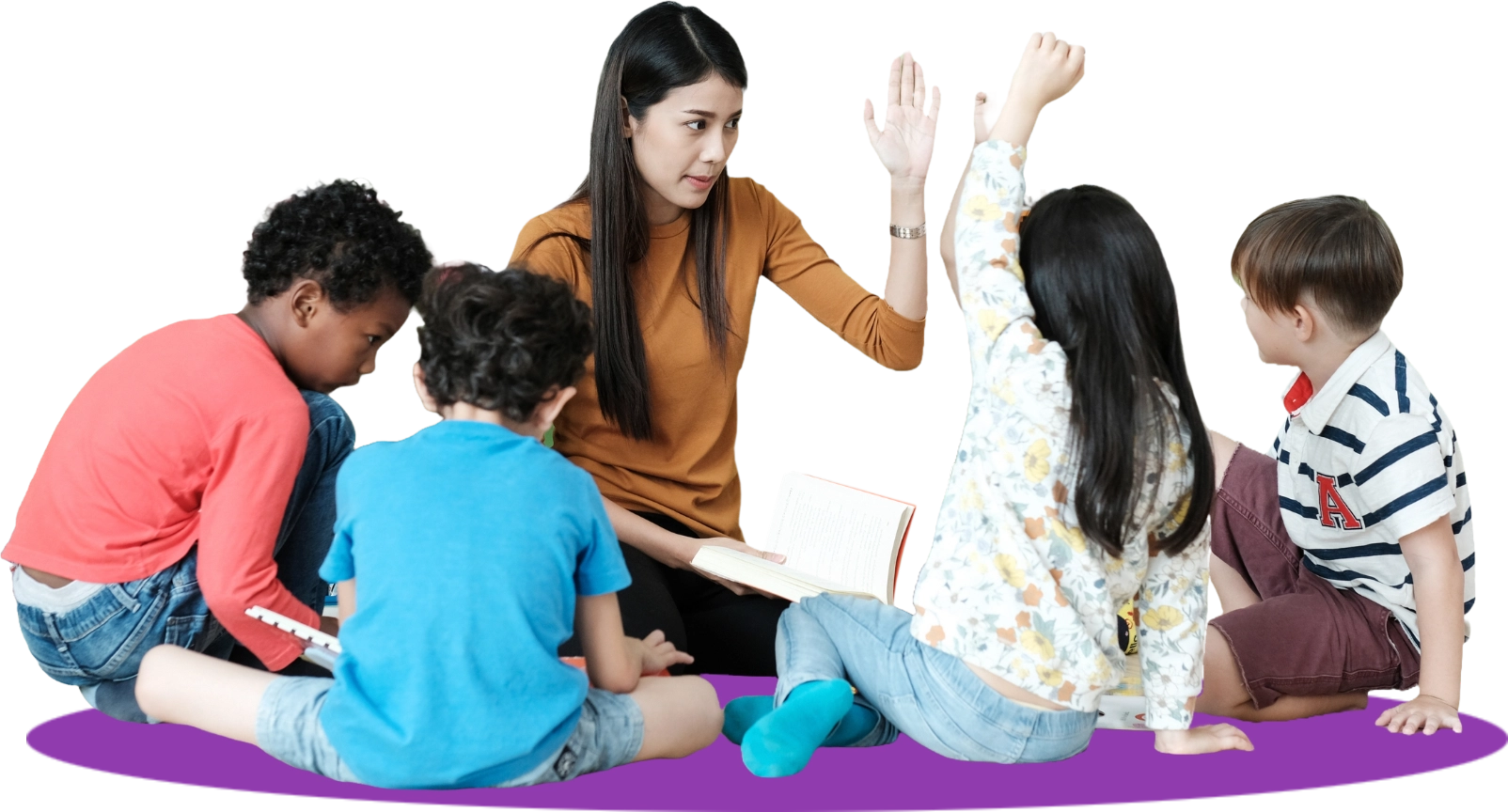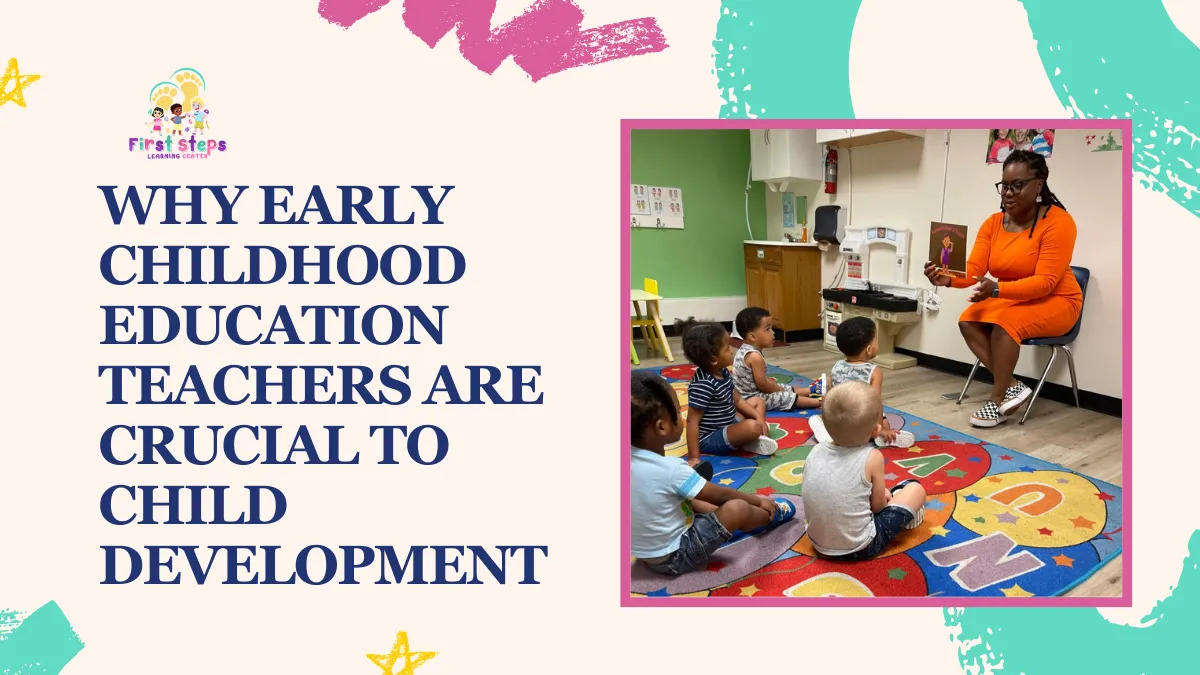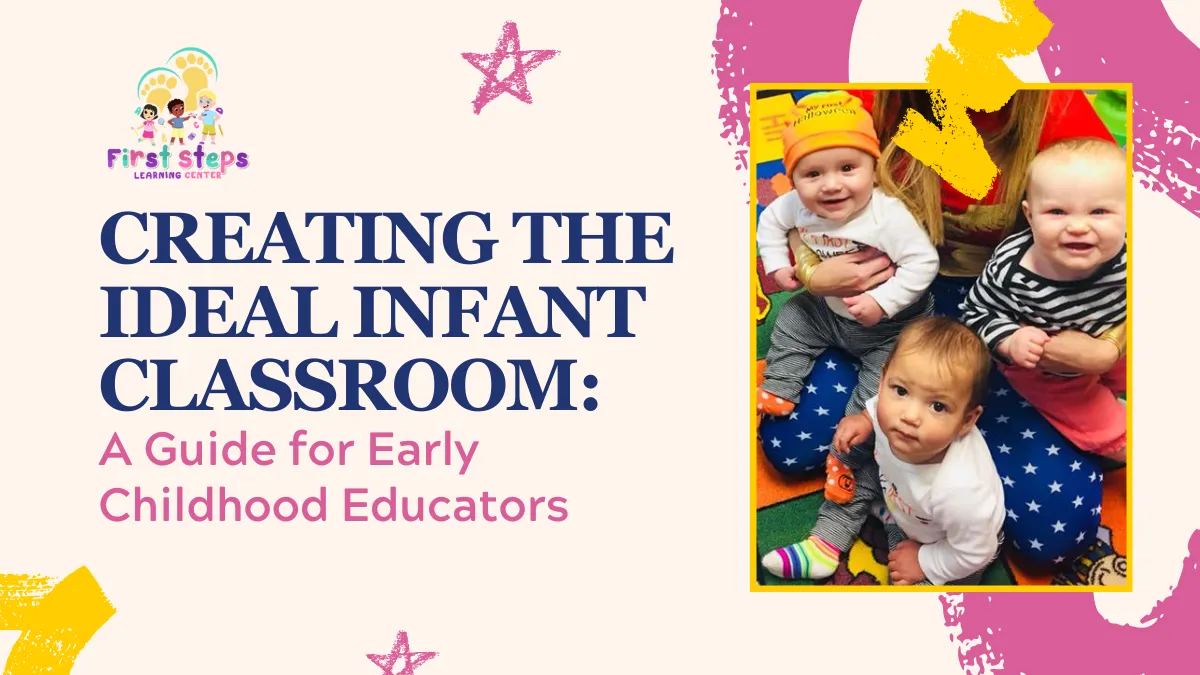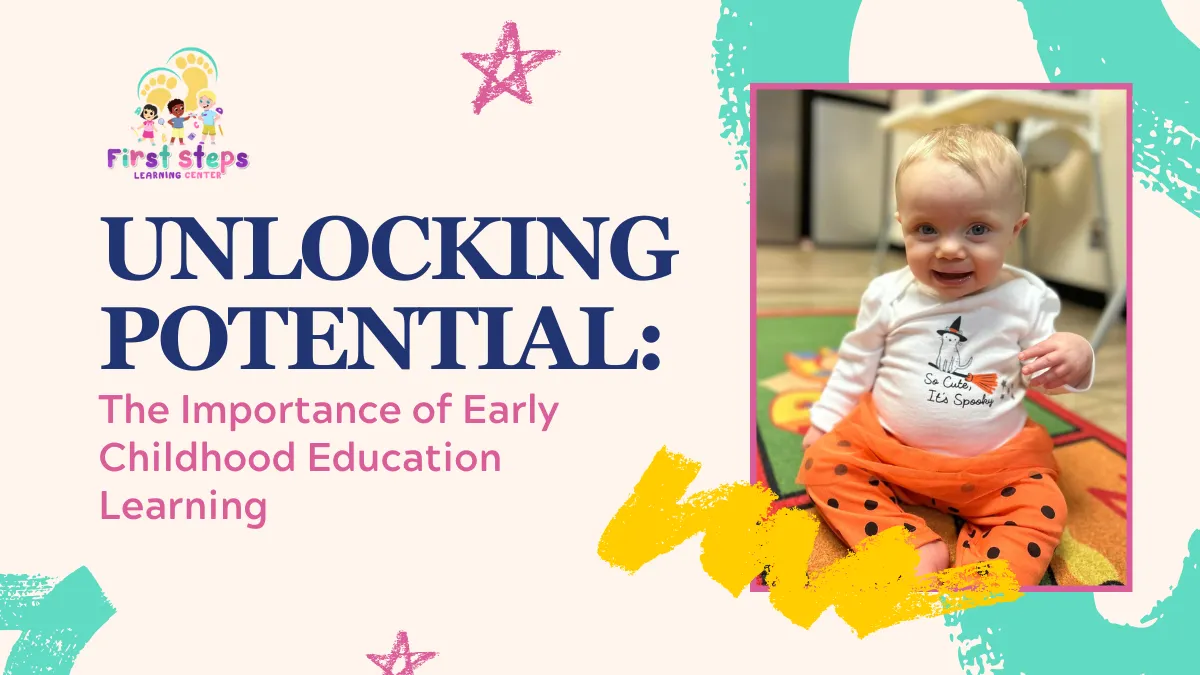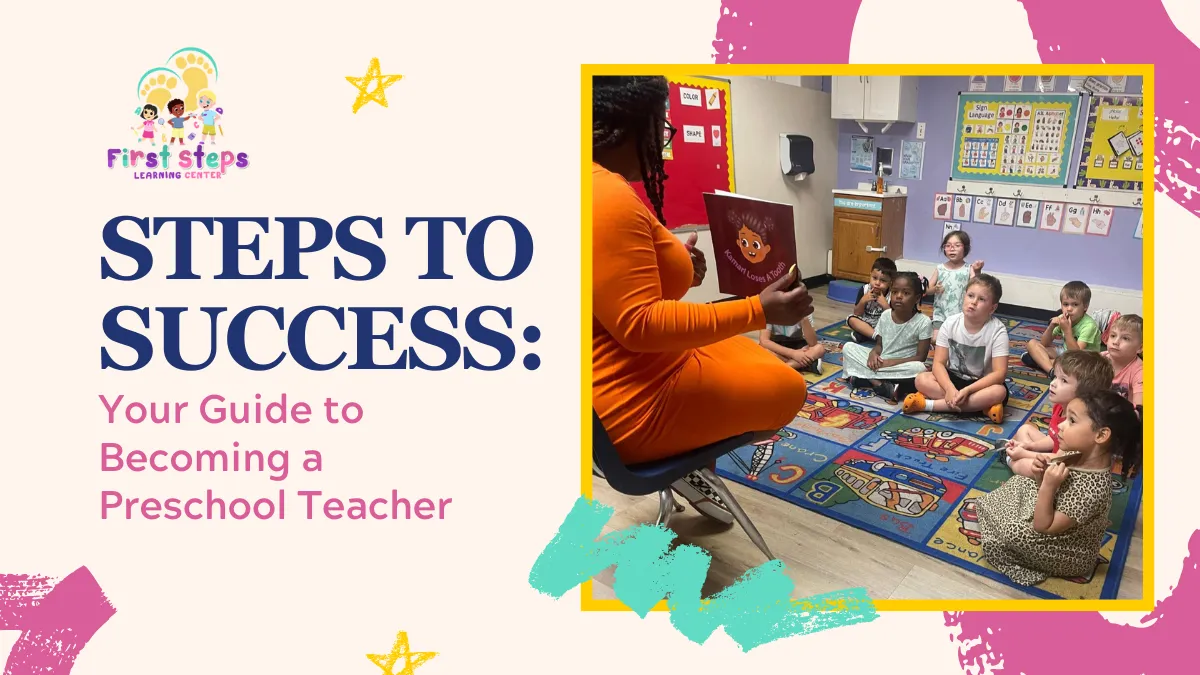Education in Childcare: Building Foundations for Lifelong Learning
Education in childcare is more than teaching—it’s about nurturing curiosity, creativity, and confidence in every child. A solid educational foundation in the earliest years sets the stage for a lifetime of success. Through engaging, age-appropriate learning experiences children develop essential skills beyond academics, including problem-solving, social interaction, and emotional resilience.
In this guide, we’ll explore the importance of education in childcare, the critical components of an effective program, and how quality early education shapes the future. Join us as we delve into the strategies and values that empower young learners to take their first steps toward achieving their full potential.
The Role of Early Childhood Education Learning in Childcare
Early childhood education learning is the cornerstone of a child’s development and future success. During these formative years, children’s brains are like sponges, gaining knowledge and experiences that shape their cognitive, emotional, and social growth. In childcare settings, early education creates a foundation that equips children with the tools they need for lifelong learning and personal achievement.
Why Early Education Matters
The early years are a time of rapid brain development, making quality education in childcare essential. Research shows that children who engage in structured early learning programs often perform better academically and socially as they grow. Early education fosters:
- Cognitive Growth: By introducing concepts like numbers, letters, and problem-solving, children develop critical thinking skills that form the basis for more advanced learning.
- Social Skills: Interaction with peers teaches cooperation, empathy, and communication.
- Emotional Resilience: A supportive learning environment helps children manage emotions and build self-confidence.
By investing in these early experiences, parents and educators set the stage for long-term success.
Critical Components of Early Childhood Education Learning
Effective early education programs are thoughtfully designed to nurture all child development aspects. Core components include:
- Age-Appropriate Curriculum: Activities and lessons should align with the developmental stages of the children, ensuring engagement without overwhelming them.
- Play-Based Learning: Structured play enhances creativity, critical thinking, and motor skills while maintaining a fun and engaging experience.
- Language and Literacy Development: Early exposure to books, storytelling, and conversations supports language acquisition and literacy skills.
- Focus on STEM: Introducing basic science, technology, engineering, and math concepts encourages curiosity and problem-solving abilities.
Benefits of Early Education in Childcare
Incorporating early education learning into childcare provides children with a range of benefits that extend beyond the classroom:
- Improved Academic Readiness: Children gain foundational knowledge that prepares them for elementary school.
- Better Adaptability: Early learners are often more comfortable in structured environments and transitions.
- Enhanced Emotional Intelligence: Programs encouraging self-expression and empathy create emotionally intelligent individuals.
How Childcare Centers Support Early Learning
High-quality childcare centers, like First Steps Learning Center, combine structured learning with nurturing care. They provide environments that inspire exploration, ensure safety, and foster positive relationships. Skilled educators guide children through hands-on activities, creative play, and meaningful interactions, all tailored to individual learning needs.
According to Harvard University’s Center on the Developing Child, early childhood education plays a critical role in shaping a child’s brain development, providing lifelong cognitive and social benefits.
By prioritizing early childhood education learning in childcare, we help children unlock their full potential and build the confidence they need to embrace lifelong learning.
Creating an Effective Learning Environment Preschool
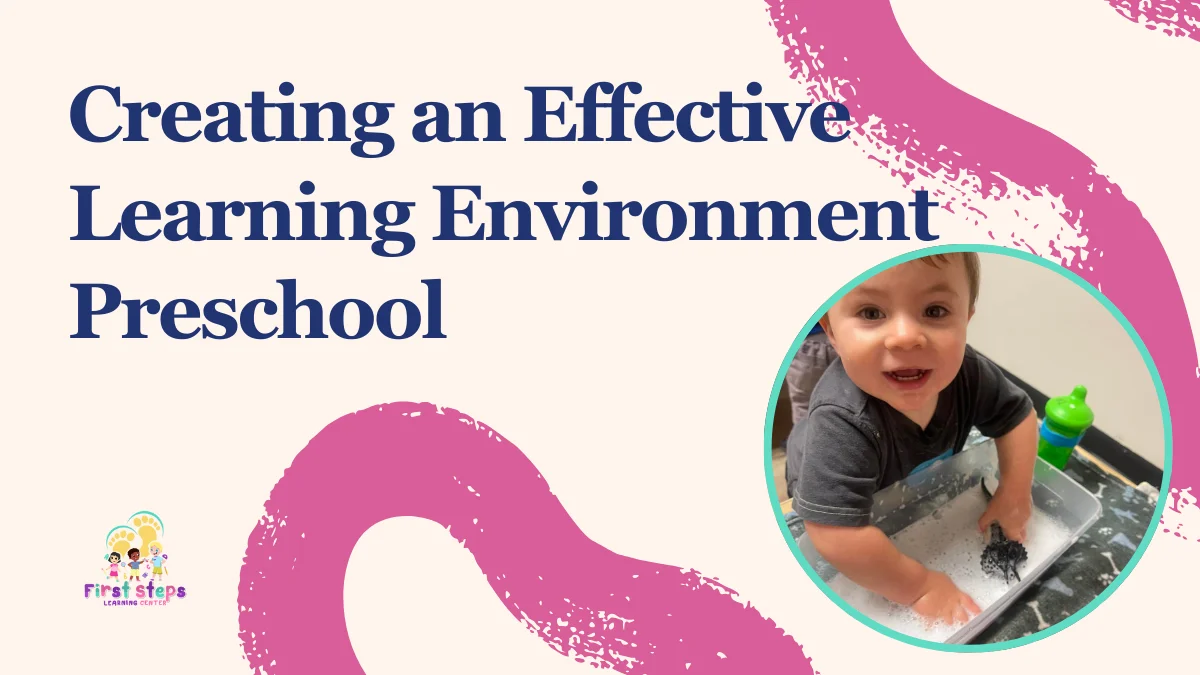
A learning environment preschool shapes a child’s educational experience. It is more than just a physical space—a nurturing, stimulating, and safe atmosphere where young learners can explore, grow, and thrive. An effective preschool learning environment fosters curiosity, supports developmental milestones, and lays the groundwork for a lifetime of learning.
Critical Elements of an Effective Learning Environment
Creating a well-rounded environment involves balancing structure, creativity, and inclusivity. Here are the core elements:
- Safety and Accessibility:
- Ensure the classroom is child-friendly with age-appropriate furniture, materials, and equipment.
- Marked play, learning, and rest areas help children feel secure and comfortable.
- Organization and Structure:
- A predictable routine with designated times for activities, meals, and rest provides stability.
- Organized spaces for toys, books, and learning tools teach children responsibility and self-management.
- Stimulating and Diverse Materials:
- Offer various hands-on learning tools like puzzles, blocks, and art supplies.
- Incorporate multicultural books, music, and activities to promote inclusivity and global awareness.
Encouraging Exploration and Creativity
A thriving learning environment invites children to explore their interests and express their creativity:
- Interactive Learning Areas:
- Set up stations for specific activities, like science experiments, sensory play, or reading.
- Rotate materials regularly to keep children engaged and curious.
- Outdoor Learning Spaces:
- Provide opportunities for outdoor play, where children can develop motor skills and engage with nature.
- Incorporate elements like garden beds or sandboxes for experiential learning.
- Creative Freedom:
- Allow children to express themselves through art, music, and imaginative play.
- Celebrate individual ideas and encourage open-ended questions to inspire critical thinking.
Building a Positive Social and Emotional Atmosphere
Children thrive in an environment where they feel supported and valued. Educators are key in fostering this atmosphere:
- Encouraging Collaboration:
- Group activities teach teamwork, sharing, and communication skills.
- Promoting Emotional Security:
- Use positive reinforcement and acknowledge achievements to build self-confidence.
- Create a classroom setting of respect and kindness where every child feels included.
- Strengthening Teacher-Student Bonds:
- Consistent, caring interactions with teachers give children a sense of trust and belonging.
Why the Learning Environment Matters
At centers like First Steps Learning Center, an effective learning environment isn’t just about meeting developmental goals and inspiring children to love learning. When thoughtfully designed, the preschool environment becomes a space where children can feel safe to explore, challenge themselves, and form meaningful connections.
The Value of Preschool Teacher Experience in Childcare Education
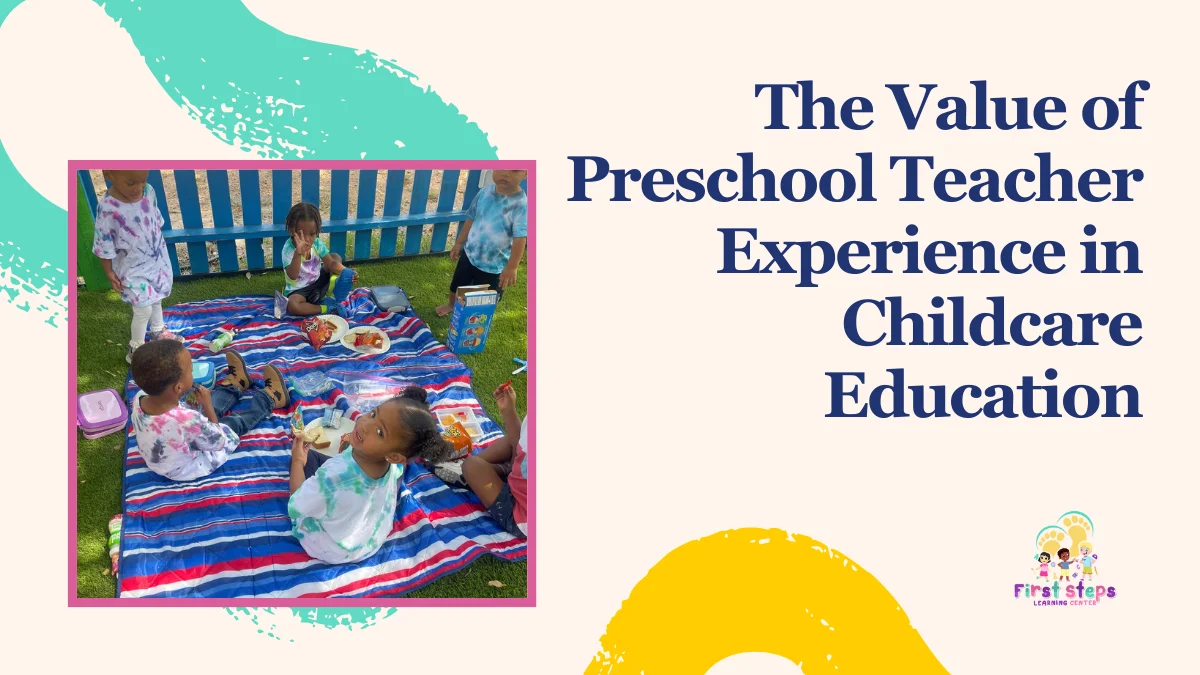
Preschool teachers are critical in shaping the foundation of a child’s education. Their expertise and experience are pivotal in creating enriching learning environments, fostering developmental growth, and ensuring children feel supported and valued. This section explores the multifaceted value of preschool teacher experience in childcare education and how it benefits children and families.
Shaping Early Learning Experiences
Experienced preschool teachers understand the unique needs of young children and adapt their teaching methods to suit individual developmental stages. This tailored approach is essential for fostering early learning in a way that feels engaging and accessible.
- Personalized Learning Strategies: Experienced teachers recognize that every child learns differently. They use various teaching methods, such as hands-on activities, storytelling, and group play, to meet each child’s needs.
- Building Strong Foundations: Experienced educators help children develop early literacy, numeracy, and problem-solving skills in natural and enjoyable ways, setting the stage for future academic success.
Creating a Nurturing Environment
A teacher’s experience in managing a classroom impacts the atmosphere they create. Seasoned preschool teachers excel at fostering environments that are both structured and nurturing.
- Encouraging Positive Behavior: Teachers use proven techniques, such as positive reinforcement and clear expectations, to promote kindness, patience, and teamwork among children.
- Emotional Support: With years of experience, preschool teachers become adept at recognizing and addressing children’s emotional needs, helping them navigate challenges like separation anxiety or social conflicts.
- Conflict Resolution: Experienced teachers guide children in resolving disputes constructively, teaching valuable skills like empathy and communication.
The Role of Professional Development
The value of preschool teacher experience is amplified when educators engage in ongoing professional development. This commitment to growth benefits children, families, and the overall childcare setting.
- Staying Updated on Best Practices: Teachers who continue learning bring fresh ideas and strategies into the classroom, ensuring children benefit from the latest research in early childhood education.
- Specialized Skills: Many experienced teachers pursue certifications or training in special education, language development, or behavioral management, enhancing their ability to address diverse needs.
Building Trust with Families
Experienced teachers impact children and play a crucial role in building trust and collaboration with families.
- Effective Communication: Experienced teachers understand the importance of clear and consistent communication with parents, ensuring families feel informed and involved in their children’s education.
- Partnering with Parents: Teachers help parents support their children’s development at home by sharing insights, offering guidance, and reassuring.
The Lasting Impact on Children
Preschool teacher experience leaves a lasting imprint on a child’s educational and personal development. Skilled educators teach foundational skills and help children develop qualities that benefit them for a lifetime.
- Fostering a Love for Learning: Experienced teachers inspire curiosity and enthusiasm, encouraging children to see learning as a joyful and ongoing process.
- Building Self-Confidence: Children gain the confidence to try new things and overcome obstacles through positive reinforcement and achievable challenges.
- Encouraging Social Skills: Teachers guide children in forming friendships, resolving conflicts, and working as part of a team, which prepares them for future social interactions.
- Instilling Resilience: Educators equip children to navigate challenges with determination and optimism by teaching problem-solving and adaptability.
With experienced preschool teachers guiding their journey, children develop academic readiness and the social and emotional tools they need for lifelong success.
Conclusion
Preschool education is a transformative stage that shapes the foundation of a child’s future. The role of experienced teachers, supportive learning environments, and thoughtfully designed programs cannot be overstated. These elements create a nurturing and enriching space where young learners develop essential skills, build confidence, and discover a lifelong love for learning. With dedicated educators guiding them, children are equipped to excel academically and thrive socially.
Are you ready to learn more about creating the best educational experience for your child? Connect with us today! Call 281-392-9194 or visit our contact page to take the first step toward your child’s bright future. Let’s build a strong foundation together!

